How to Make a Costume Drama That's Personal: Michael Noer on 'Before the Frost'
Winter is most definitely coming.
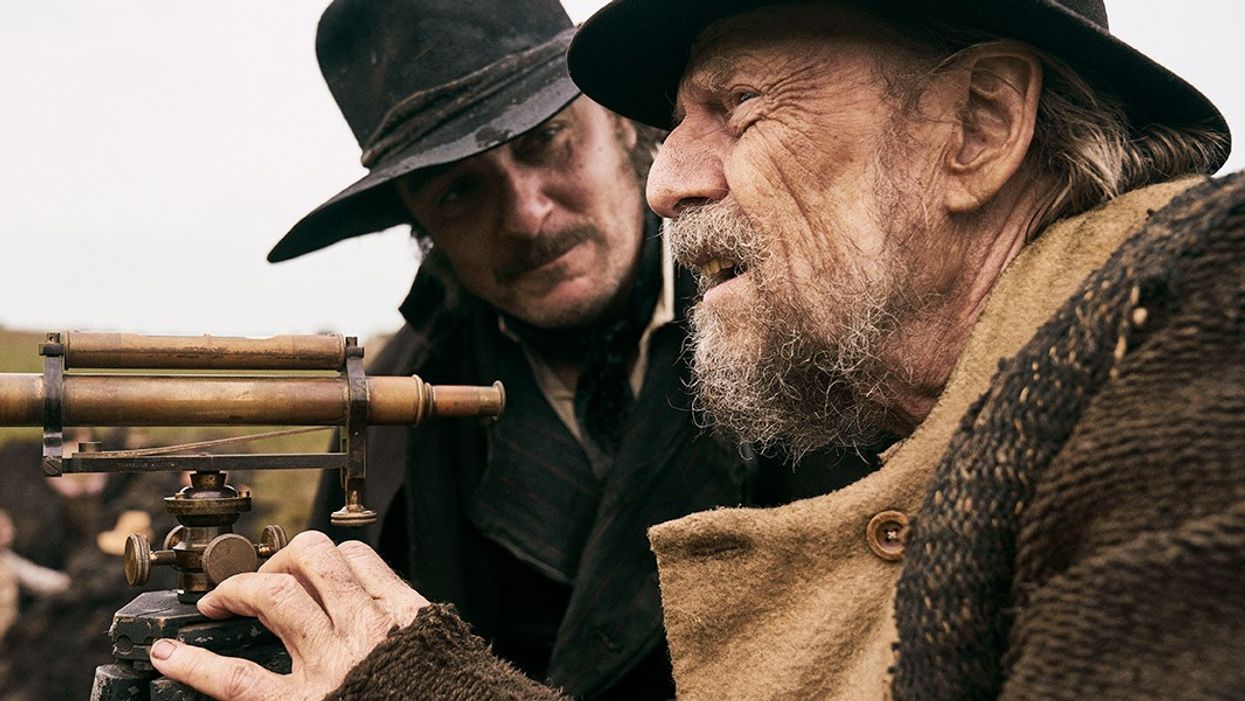
Award-winning Danish filmmaker Michael Noer knows how to unravel a character like a ribbon. Following his 2017 remake of Papillon, Noer returned to TIFF this year to present his new ‘Scandi-Western’: Before The Frost.
This chilling film follows struggling farmer Jens (Jesper Christensen) and his daughter Signe (Clara Rosager) in 19th century Denmark. Winter is coming, and Jens goes to desperate lengths to ensure his family’s survival.
Solidifying Noer’s reputation as one of his generation’s greatest directors, Before the Frost has a stark historical realism that rivals the medieval essence of Game of Thrones. Sturla Brandth Grøvlen’s camera follows drained and dun faces through bleak grey-blue marshlands as they fortify themselves—emotionally and physically—against the coming storm (Notably, Grøven also shot Victoria [2015], a rare one-take spectacle).
Most impressive, however, is how the period atmosphere doesn’t distract but rather enhances. Eclipsing showy Jane Austen-style costume dramas, Before the Frost offers a spare level of detail—and nerdy affection for this historical period—that usually comes from years of research.
Below, No Film School sat down with Noer and his actors to discuss the creative process.
“As a director, first and foremost, you have to be curious."
Stay curious
Noer’s fiction films aren’t the only ones that win awards. The Great Dane has a tactile empathy for his characters—and a keen eye for gritty detail—that is almost unparalleled. He attributes both of these skills to his background in documentaries. In Vesterbro (2007), he captured the unadulterated drama of a neighboring couple’s lives; in Wild Hearts (2008), a vérité bildungsroman, he followed a Danish moped gang across the country.
“As a director, first and foremost, you have to be curious. You have to ask questions that take you beyond yourself. Because that’s what filmmaking is: going beyond.” Noer nodded vigorously, eager to drive his point home. “Making movies keeps getting harder. You have to produce more hours of footage, you have to shoot things faster and faster. The antidote is to stay curious.”
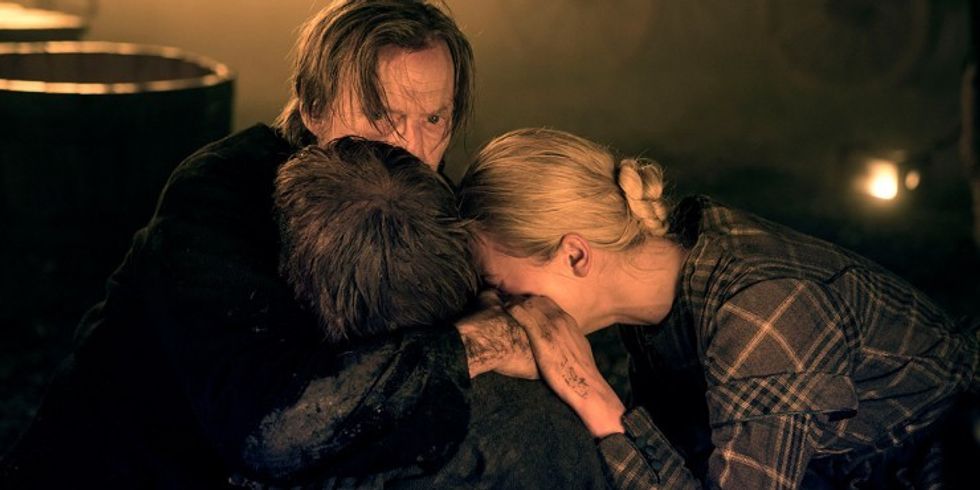
Noer first discovered this back at the National Film School of Denmark. “I’m really grateful for what I learned there, because we had to make so many documentaries. As an exercise, we started off shooting extremely personal portraits of ourselves and our families; then friends and acquaintances; and finally, at the end, people we didn’t know.”
Filming his neighbors for three years was a seminal experience. A large portion of Vesterbro focuses on his neighbor’s pregnancy and her doubts about whether or not to keep the child. “On one hand, you’re a fly on the wall. On the other hand, you’re a manipulator. I was her friend, but I was also curious about being a woman, being pregnant. It was an eye-opener because I realized how, as filmmakers, we can truly inhabit another world.”
Educate yourself and your actors
In 2010, Michael Noer graduated to fiction filmmaking. His debut was the critically-acclaimed inmate drama R, starring Game of Thrones’ Pilou Asbaek.
“We did a ton of research with real inmates, which I found was a great method for directing fiction: approach your story practically, create a logical script. You service your actors by giving them tools: you explain the facts, then leave the emotions up to the actors.” Noer narrowed his eyes, adding: “When you’re watching a movie that’s well-researched, you can always sense the authority on the subject matter.”
Need proof? At the Robert Festival, the Danish equivalent of the Oscars, R took home a staggering eight wins.
Never one to rest on his laurels, Noer uses each new fiction film as an opportunity to ingest what he calls “intellectual vitamins.” In his mind, there’s no point in regurgitating stuff you already know onto the big screen. Instead, he encourages you to “challenge yourself by exploring stuff you DON’T know.”
For Noer, this included the plight of 19th century farmers.
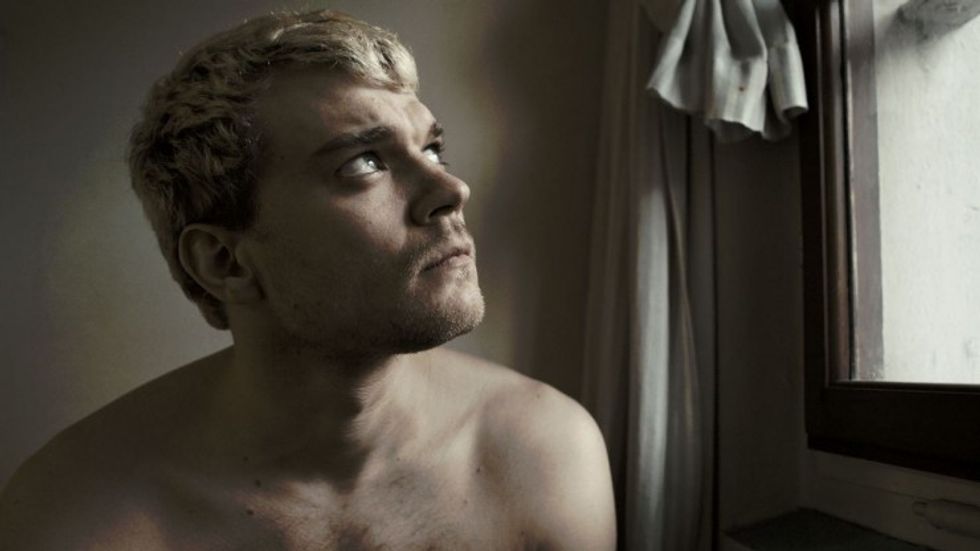
Don’t be afraid to entertain
Before the Frost is Noer’s first period film and his excitement was palpable. He described its development as “taking a practical approach to a mystical world.”
“Forcing ourselves to do it as a period movie really maximized the pressure,” he winced, shaking his head at the memory, "but in a weird way, it helped us. I think it pushes the audience away, then pulls them in.”
As Noer sees it, this is more of a Western than a costume drama, or a “Scandi-Western,” as he likes to call it. Citing Unforgiven and Pelle the Conqueror as inspirations, he explains: “In Westerns, there’s so often communication between characters and nature. Dark clouds and blazing suns often signify the fates of the characters.”
In both the script—co-written by Noer and Jesper Fink—and the film, nature plays a strong role. Even the opening scene has an ominous portent: a human hand frozen under a shelf of ice.
“I’m not afraid to try to entertain people,” he laughed. “I just try to do it in a surprising way.”
As one of his tactics, Noer showed visual references to everyone in the crew—one of which was Van Gogh’s The Potato Eaters. “It’s a painting that really smells,” he declared enthusiastically, “and I wanted to make a movie that smells. I really wanted to capture that provocative grittiness.” This is perhaps most effectively evident in the scene where Jesper Christensen delivers a calf from a pregnant Heifer: the smells emanating from the screen are pungent indeed.
Looking at Noer and Christensen, both debonair urbanites in skateboard shoes, you wouldn’t expect them to pull it off. Yes—not unlike a Danish farmer toiling his field—Noer did indeed do his research: he plumbed the libraries and he met with historians. But Before the Frost goes beyond history. It’s greatest strength is emotional accuracy: a moralistic fable about the human condition.
The setting may feel other-worldly, but the themes feel close to home.
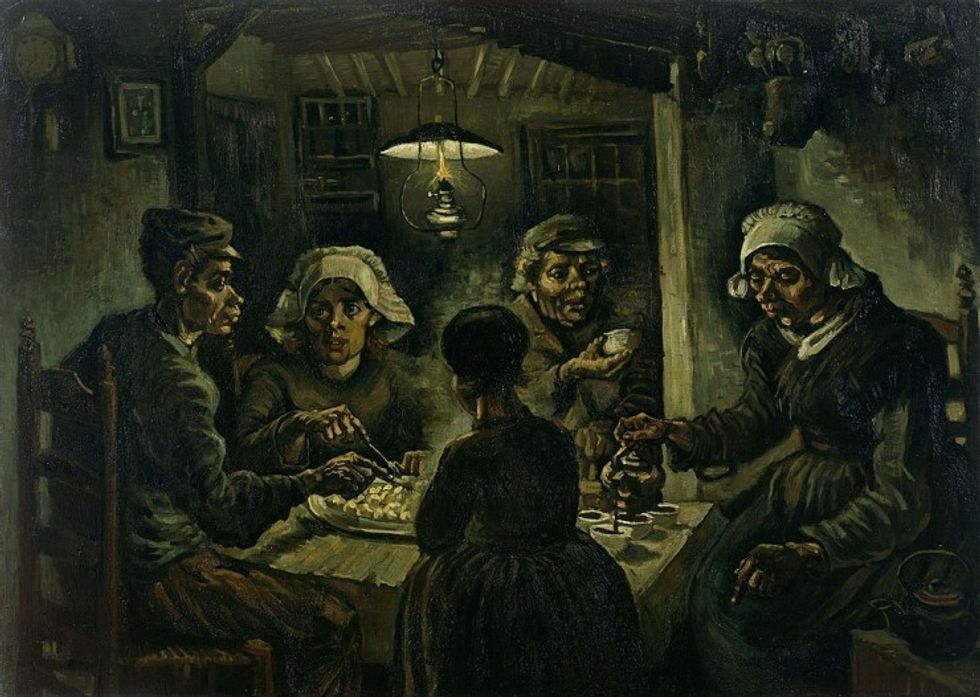
Keep it personal!
Noer’s leading man, Jesper Christensen (whom you may know as Mr. White from Casino Royale back in 2006) was a perfect fit for this tale. The Danish A-lister paints a remarkably empathetic character, who—even as he sacrifices his moral compass to protect his daughter—only becomes more relatable. During our interview, he was still deeply affected by the role.
“I know what completely insane things I would do for my children, if I was in fear that they would suffer some terrible destiny,” he said matter-of-factly. “It’s not that Jens has a certain flaw in his character, it’s the environment around him that forces him into horrible circumstances. I think the film is more indicative of how we’ve failed as humanity—as a race—than what’s wrong with one individual.”
Noer nodded: there is a universal aspect to his message—but that’s not all. “Part of why I had so much fun making Before the Frost is because it’s so extremely personal.”
The co-writers used the universality of fatherhood to make their period piece accessible and personal.
“A costume drama may seem like the most impersonal genre there is,” Noer reasoned. “But genres can be extremely personal. In fact, they have to be. And that’s hard: as an artist, you eventually empty yourself of personal subjects to depict, there’s nothing left to grab out of your belly.” Noer tapped his foot, insistent, "but you can mirror your personal issues in other people.”
By emphasizing the inexorable power of nature, Noer focused on the fragility of man. “I think all directors seek out storylines that maximize their own fear. This film was exactly that: I wanted to create a portrait of a man under maximum pressure, trying to find a balance between his ego and saving his family. In an almost biblical way, he has to choose between his own kids.” Noer paused, then grinned: “As a young filmmaker, I thought I’d never do a costume drama, but now I want to do three!”
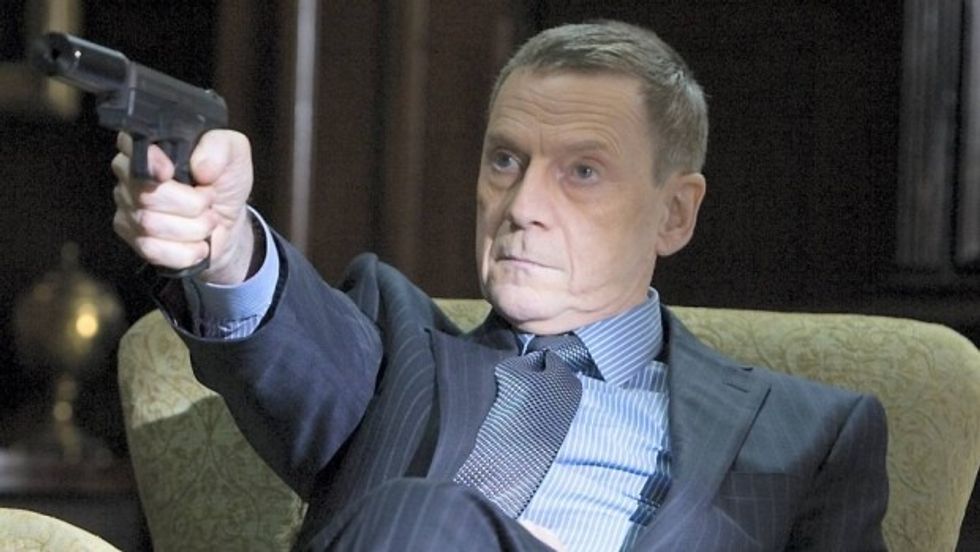
Use History To Tell Modern Truth
Before The Frost has surprisingly resonant parallels to the modern day. Take Instagram, for example. In a Trojan horse kinda way, Noer uses the Church in Jens’ small village to critique the social media platform’s role in our current society. “We’re in a parallel dream world here,” he explained, “trying to compete over how well we’re living.”
For farmers of the 1800s, Church wasn’t just a House of God—it was a commune. They worked so much that Sunday Church became the main social event of the week, where social status dictated where you were allowed to sit. Before the Frost shines a harsh light on this weakness. In a key moment, when Jens gets to sit in a front pew, it’s a breaking point for his character. “He gets consumed by what other people think of him, he’s competing over something completely ridiculous,” Noer paused "and it’s a dangerous path if you want to live a happy life.”
Before the Frost also takes on issues of gender. Despite patriarchal traditions, the film’s females are ultimately more empowered than the males. As Jens’ daughter Signe, Clara Rosager commands empathy by reacting with courage and dignity when suddenly faced with an arranged marriage at the behest of her father. She takes time to warm up to her new, significantly older husband Gustav, but when she finally does—it’s on her own terms.
Rosager clarifies: “During the funeral, the only person who can actually handle Signe is her new husband. She finally allows him to take her hand for the first time in this scene. This was the major shift for her character, when she decides to take control of her own fate.”
These two issues—social status and female empowerment—dictate the divide between Jens and Signe right up until the film’s uneasy conclusion and leave us with food for thought long after the film is over.
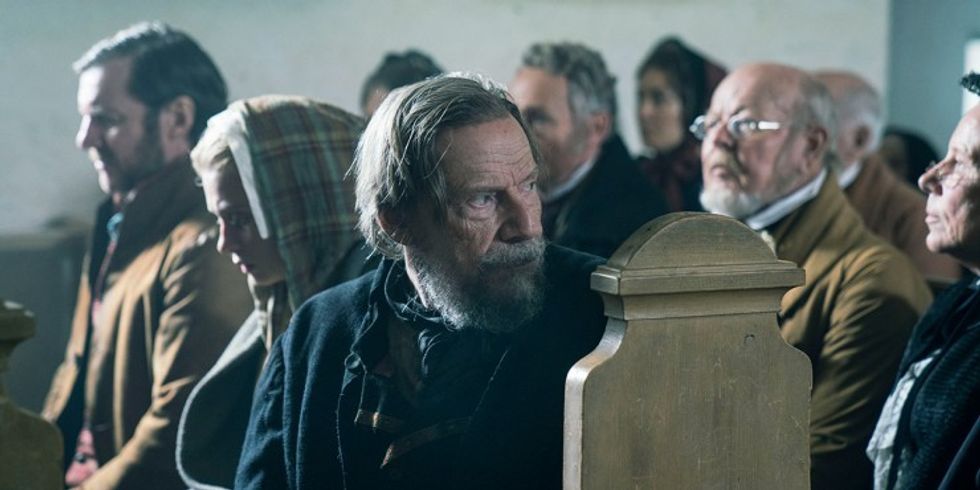
Be impatient – and keep your costs low
Last question: What practical advice would they offer to today’s young artists? In a meta-moment, the film's themes seemed to inspire their counsel; they suddenly possessed the severity of a group of Danish farmhands.
Noer was first to speak. “Don’t wait for anyone. Whenever I talk to younger filmmakers, the moment they use ‘wait’—‘I’m waiting for this guy to call me,’ etc.—I’m like ‘forget it, do something else.’” Noer shook his head, his own restlessness showing, “I’m not saying that no one’s going to help you, but if you’re waiting for money, use less money. If you’re waiting for a location or an actor, find another. If you’re waiting for an impossible Sci-Fi budget, make a kitchen-sink drama. Just remember Hitchcock’s advice: throw in a murder.”
Jesper Christensen had the last word. “Throughout my whole career, one piece of advice has stayed with me, and stayed useful.” Blue eyes flickering steel, he paused for urgency, almost in character, "and that’s to live cheaply. Even when it’s going well, keep your costs low. Because otherwise you lose your ability to choose between the good jobs and the bad jobs. When there are only bad jobs to be had, you lose your lust for working.”
And—as they both forgot to mention—if you don’t choose wisely, you may not survive the winter.











